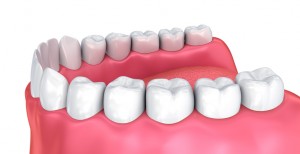 The most interesting thing about history is that it can still be felt all around us. You can see castles that are hundreds of years old or read books written by people from a completely different era. Another bit of history involves your own body. Homo sapiens, or the human species, first appeared around 200,000 years ago. Over that time, the human body has changed quite a bit, but one particular thing still lingers from all those years ago: your wisdom teeth. Most modern people still have their wisdom teeth despite the fact that they often need to be removed. Why is that the case? Why do we still have them? Why do we need them removed? Today, your family dentist in Chaska from the Chaska Dental Center is going to answer these basic questions.
The most interesting thing about history is that it can still be felt all around us. You can see castles that are hundreds of years old or read books written by people from a completely different era. Another bit of history involves your own body. Homo sapiens, or the human species, first appeared around 200,000 years ago. Over that time, the human body has changed quite a bit, but one particular thing still lingers from all those years ago: your wisdom teeth. Most modern people still have their wisdom teeth despite the fact that they often need to be removed. Why is that the case? Why do we still have them? Why do we need them removed? Today, your family dentist in Chaska from the Chaska Dental Center is going to answer these basic questions.
A Little More About the Wisdom Teeth
The third set of molars, more commonly known as the “wisdom teeth,” typically start to come in around the ages of 17-21. They got their name from the fact that most people are considered adults and should be “wise” by this age. For ancient humans, they were essential for chewing the coarse roots, fibrous vegetables, and tough meats that made up their diet. In fact, this diet would typically wear down and break the other molars over time, and the wisdom teeth would replace them. As modern-day cooking techniques and dentistry developed, the need for these teeth disappeared, so the human jaw began to naturally shrink. However, despite basically being obsolete, the teeth themselves remain, and they can end up causing a lot of problems for contemporary people.
Why They Need To Be Removed
When the wisdom teeth start to erupt, a few things happen, and most of the time, they are not very good. Because they simply don’t fit in the modern jaw, they can cause the other permanent teeth to become crooked and crowded. More often, they become stuck in either the jaw or gums, becoming impacted, which can lead to pain and soreness in the back of the mouth. This can also create an area where food particles and bacteria can easily gather, and over time this can lead to an infection. This infection can cause more pain and spread to the surrounding teeth, gums, and jaw. Eventually, this can weaken the jaw and make it very easy for you to lose teeth! In order to avoid all of these problems, a dentist will most often recommend that they be removed around the ages of 17-19.
How Can I Get Them Removed?
The ideal scenario is to have the wisdom teeth removed before they can cause you any of these difficulties. How can you make sure this happens? Simple! Just be sure to see your dentist in Chaska at the Chaska Dental Center at least twice a year. Dr. Swingdorf will always examine your wisdom teeth during your standard preventive check-up. If they begin to look like trouble, the doctor will refer you to a local oral surgeon to remove them. Wisdom teeth extractions are completely painless because a patient is usually put under general anesthesia for the procedure. They can normally be completed in one visit, and recovery only takes about a week. While having them removed may seem a little uncomfortable, it’s a way better option than simply leaving your wisdom teeth alone.
Want To Know More?
Hopefully, this answered most of your questions about wisdom teeth. They’re just a little bit of (problematic) history right in your mouth! If you have any more questions about the wisdom teeth, having them removed, or are experiencing any pain because of them, be sure to contact our office today.









